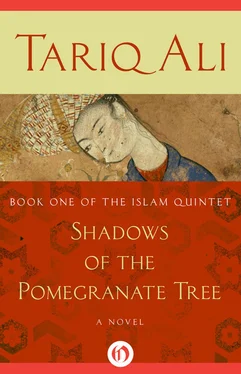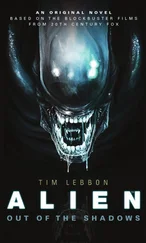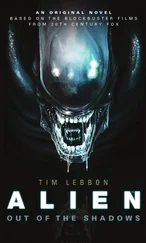Umar’s horse was hamstrung and the fall concussed him. Soldiers dragged him to the captain. As the two men looked at each other, the captain’s eyes gleamed with hatred. Umar dispassionately studied his young conqueror.
‘You see before you the wrath of our Lord,’ said the captain.
‘Yes,’ replied Umar. ‘Our village emptied of its people. Women and children put to the sword. Our mosques given to the flames and our fields desolated. Men like you remind me of the fish in the sea who devour each other. These lands will never be prosperous again. The blood I see in your eyes will one day destroy your own side. There is only one Allah and he is Allah and Mohammed is his prophet.’
The captain did not reply. He looked at the soldiers on either side of his prisoner and nodded. They did not need further urging. Umar bin Abdallah was forced to his knees. Then the archers struck. Two arrows found their targets as Umar’s would-be-executioners were felled. The captain screamed: ‘Burn this place down.’ Then he ordered two other soldiers forward, but by this time Umar had caught up a sword from one of the fallen men and was fighting once again.
It took six men to recapture the chief of the Banu Hudayl. This time he was beheaded at once, and his head skewered on the point of a pike. After being paraded round the forecourt it was taken into the outer courtyard. Screams and wails burst forth, followed by cries of anger and the clash of blades.
An archer who had witnessed Umar’s death ran from the scene and informed Zubayda. Tears poured down her face. She took a sword and joined the defenders in the courtyard outside.
‘Come,’ she shouted at the other women, ‘we must not let them take us alive!’
The women, to the great astonishment of the Christians, displayed a boundless courage. These were not the weak and pampered creatures of the harem about whom they had been told so many fanciful stories. Once again it was the element of surprise which aided the women of al-Hudayl. They were responsible for decreasing the size of the captain’s army by at least a hundred men. Ultimately they succumbed, but with swords and daggers in their hands.
After two hours of fierce fighting, the killing was done. All of the defenders lay dead. Weavers and rhetoricians, true believers and false prophets, men and women, they had fought together and died in view of each other. Juan the carpenter, Ibn Hasd and the old sceptic al-Zindiq had refused Umar’s offer to hide in the granary. They too, for the first time in their lives, had wielded swords and perished in the massacre.
The captain was angry at having lost so many men. He gave the order for the house to be looted and burnt. For another hour the men, drunk on blood, celebrated their victory in an orgy of plunder. The children, who had been hidden in the baths, were decapitated or drowned, depending on the mood of the soldiers involved. Then they set the old house alight and returned to their camp.
Lingering with his two aides, the captain now dismounted and sat down in the garden, watching the house burn. He took off his boots and dangled his feet in the stream which bisected the garden.
‘How they loved the water!’
Beneath the ground, Yazid would wait no longer. It had been silent for a very long time. The Dwarf insisted that the boy must stay, but he was adamant.
‘You stay here, Dwarf,’ he whispered to the old man. ‘I will go and see what has happened and then come back. Please don’t come with me. Only one of us should go. I’ll scream if you disobey me.’
Still the Dwarf would not budge and Yazid, feigning exhaustion, pretended to settle down again. As the grip on his arm relaxed just a little, he broke loose. Before the Dwarf could stop him he had climbed up the ladder and forced up the cover enough to slip through. When he stood up, it was to see a litter of corpses and his house on fire. The sight unhinged him. He lost all his fear and began to run towards the courtyard, screaming the names of his parents.
The captain was startled by the noise. As the boy ran through the garden, the two aides seized him. Yazid kicked and flailed.
‘Let me go! I must see my father and mother.’
‘Go with him,’ the captain told his men. ‘Let him see for himself the power of our Church.’
When he saw his father’s head impaled on a pike, the boy fell on his knees and wept. They could go no further because the flames were overpowering, as was the stench of burning bodies. If they had not held him back, Yazid would have rushed through the flames to find his mother and perished in the fire. Instead they dragged him back to the captain, who was now ready to mount his horse.
‘Well boy?’ he asked in a jovial tone. ‘Now do you see what we do to infidels?’
Yazid stared at him, paralysed by inexpressible grief.
‘Have you lost your tongue, boy?’
‘I wish I had a dagger,’ said Yazid in a strangely distant voice. ‘For I would run it through your heart. I wish now that many centuries ago, we had treated you as you have treated us.’
The captain was impressed despite himself. He smiled at Yazid and looked thoughtfully at his colleagues. They were relieved at his reaction. They did not have the stomach to kill the boy.
‘You see?’ he said to them. ‘Did I not say earlier today that the hatred of the survivors is the poison that could destroy us?’
Yazid was not listening. His father’s head was talking to him.
‘Remember, my son, that we have always prided ourselves on how we treat the vanquished. Your great-grandfather used to invite knights he had defeated to stay in our house and feast with him. Never forget that if we become like them, nothing can save us.’
‘I will remember, Abu,’ said Yazid.
‘What did you say, boy?’ asked the captain.
‘Would you like to stay at our house and be my guest tonight?’
The captain gave his aides the signal they knew only too well. Normally they carried out his orders at once, but it was clear that the boy had lost his mind. It was like cold-blooded murder. They hesitated. The captain, enraged, drew his sword and plunged it into the boy’s heart. Yazid fell to the ground with crossed arms. He expired on the spot. There was a half-smile on his face as the blood, full of bubbles, gurgled out of his mouth.
The captain mounted his horse. Without a glance at his two lieutenants, he rode out of the gate.
Night came on. The sky which had seemed like a burning abyss a few hours ago was now dark blue. First two and then a pleiade of stars began to fill the sky. The fires had gone out and everything was dark, the way it must have been a thousand years before when the land grew wild and there were neither dwellings nor creatures to live in them.
The Dwarf, his eyes rigid with horror, was sitting on the ground with Yazid’s body in his arms, swaying gently to and fro. His tears were falling on the face of the dead child and mingling with his blood.
‘How did it come to pass that of all of them I alone am still alive?’
He repeated this phrase over and over again. He did not know how or when he fell asleep or when the cursed dawn announced a new day.
Since the moment Ibn Basit had told him that he had seen a force of several hundred Christian soldiers outside al-Hudayl, Zuhayr had almost killed his mare by riding without stop till he reached the approaches to the village. Deep lines marked his face, descending from the side of his eyes to the edge of his lips. His eyes, usually black and shining, seemed colourless and dull in their deep hollows. Two months of fighting had aged him a great deal. It was a clear night as Zuhayr galloped through the gorse, his thoughts not on his men, but on his family and his home.
‘Peace be upon you, Zuhayr bin Umar!’ cried a voice.
Читать дальше












